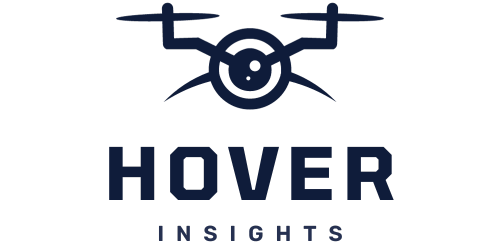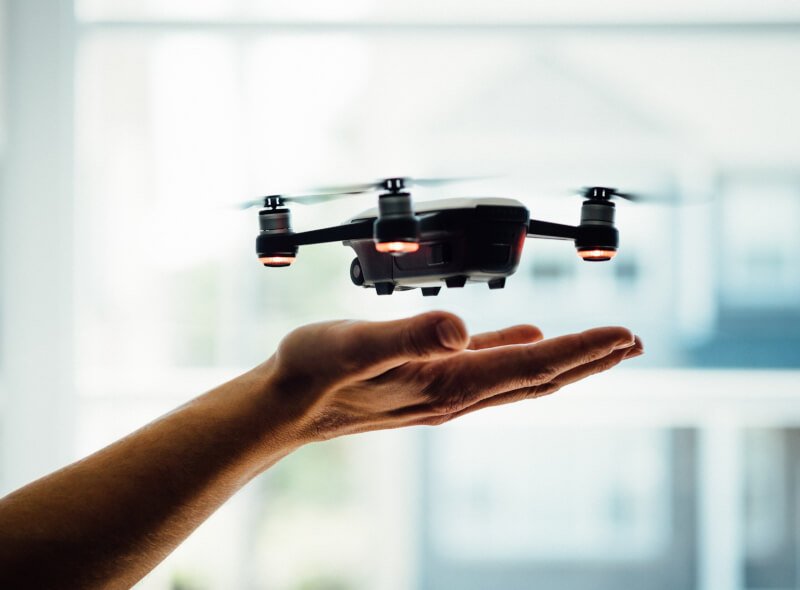In the era of technological advancements, the use of drones has become a controversial topic that raises ethical concerns. As these unmanned aerial vehicles become more accessible and affordable, it becomes crucial to examine the boundaries of their use. From privacy invasion to potential safety hazards, the question arises: where should we draw the line when it comes to the ethical use of drones? This article explores the various aspects of this complex issue, aiming to shed light on the ethical challenges faced in drone operation.

Privacy Concerns
In today’s digital age, privacy concerns are at the forefront of discussions surrounding drone use. The increasing prevalence of drones has raised questions about the invasion of privacy that may occur. Drones equipped with cameras have the capability to capture images and videos from above, which can be perceived as an intrusion into personal spaces. Whether it’s individuals enjoying their own backyard or employees working in an office building, the potential for surveillance and monitoring raises concerns about the violation of privacy rights.
Invasion of Privacy
One of the primary concerns regarding drones is the potential invasion of privacy. With their ability to hover and maneuver through various spaces, drones can capture images and videos without individuals’ knowledge or consent. This raises questions about the boundaries of privacy in public and private spaces. While laws exist to protect individuals from intrusive surveillance, the advancements in drone technology have outpaced legislation, leaving a gray area in terms of privacy rights.
Surveillance and Monitoring
The capability of drones to conduct surveillance and monitoring has both positive and negative implications. On one hand, drones can be used for search and rescue operations, efficiently monitoring large areas and providing valuable information in emergency situations. On the other hand, the use of drones for constant surveillance by law enforcement agencies or private entities, such as corporations, can lead to widespread monitoring and potential abuse of power. Striking a balance between the benefits and risks of drone surveillance is crucial to protect individual privacy rights.
Military Applications
Drones have become an integral part of modern warfare, providing various military applications. However, the use of drones in warfare brings about a host of ethical concerns.
Targeted Killings
One of the most controversial aspects of drone use in the military is targeted killings. Drones equipped with missiles are capable of carrying out precision strikes on specific targets. While this technology can minimize casualties among troops, it raises questions about the ethics of remotely controlled acts of violence and the potential for collateral damage.
Collateral Damage
The concept of collateral damage – unintentional harm to civilians or non-combatants during military operations – is a deeply troubling aspect of drone warfare. The accuracy of targeted strikes may not always be foolproof, and innocent lives may be lost as a result. Balancing military objectives with the protection of civilian lives remains a significant challenge in the ethical use of drones.
Impersonal Warfare
The use of drones in warfare has also been criticized for creating a sense of impersonality in combat. Unlike traditional warfare, where soldiers engage in direct combat, drone operators carry out operations from remote locations. This detachment from the consequences of their actions may desensitize operators and potentially lower the threshold for violence. The ethical implications of removing the personal element from warfare require careful consideration.
Law Enforcement
Aside from military applications, drones are increasingly being used by law enforcement agencies for a range of purposes. While they can enhance operational effectiveness, concerns about their impact on civil liberties have emerged.
Search and Rescue Operations
One of the most valuable applications of drones in law enforcement is their use in search and rescue operations. Equipped with high-resolution cameras and thermal imaging technology, drones can cover vast areas quickly, searching for missing persons or providing assistance in natural disasters. In these cases, drones are a valuable tool that can save lives and improve efficiency.
Crime Prevention
Law enforcement agencies have utilized drones for surveillance and policing purposes, aiming to prevent and deter criminal activities. Drones can monitor high-crime areas or provide aerial surveillance in support of ground operations. While this can undoubtedly enhance crime-fighting capabilities, concerns arise regarding the potential for constant surveillance and the impact on individuals’ privacy rights.
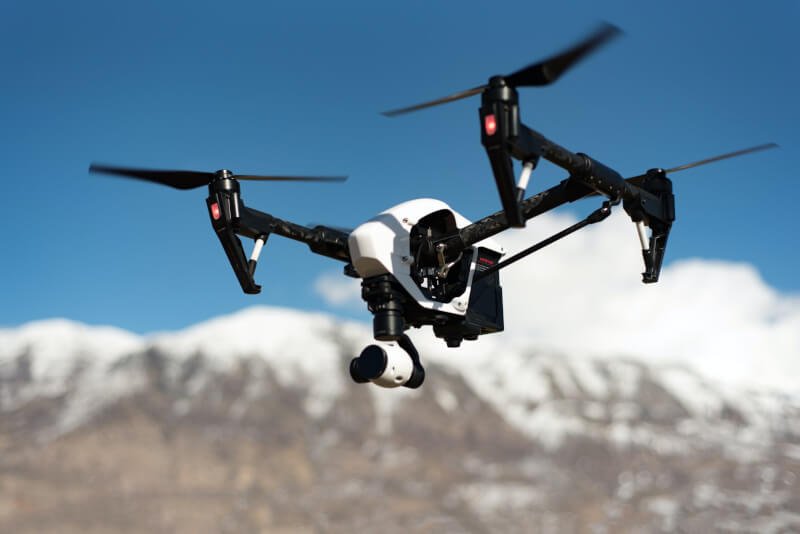
Surveillance and Policing
The use of drones for surveillance in law enforcement has raised significant concerns. Critics argue that widespread drone surveillance can infringe upon individual privacy and potentially lead to discriminatory targeting. Proper regulation and oversight are necessary to ensure law enforcement agencies strike a balance between protecting public safety and respecting civil liberties.
Commercial Use
Drones have also found extensive applications in the commercial sector, revolutionizing industries and offering numerous benefits. However, as with any emerging technology, there are ethical considerations surrounding their use.
Delivery Services
The use of drones for delivery services has gained significant attention in recent years. Companies like Amazon have begun exploring the use of drones to deliver packages, offering convenience and faster delivery times. However, concerns regarding airspace safety, security, and noise pollution have raised questions about the widespread implementation of drone delivery systems.
Filming and Photography
Drones have revolutionized the field of filmmaking and photography by providing stunning aerial shots and perspectives previously unattainable. From professional cinematography to hobbyist photography, drones offer a unique and captivating visual experience. However, considerations regarding privacy, especially in areas where individuals may not consent to being recorded, must be taken into account to navigate the ethical boundaries.
Agricultural Applications
Drones have also found utility in agriculture, aiding farmers in crop monitoring, precision agriculture, and pesticide application. They can provide real-time data on crop health, identify areas requiring attention, and optimize resource utilization. Nevertheless, concerns regarding data privacy, environmental impact, and the potential for job displacement in the agricultural industry must be addressed to ensure the ethical use of drones.
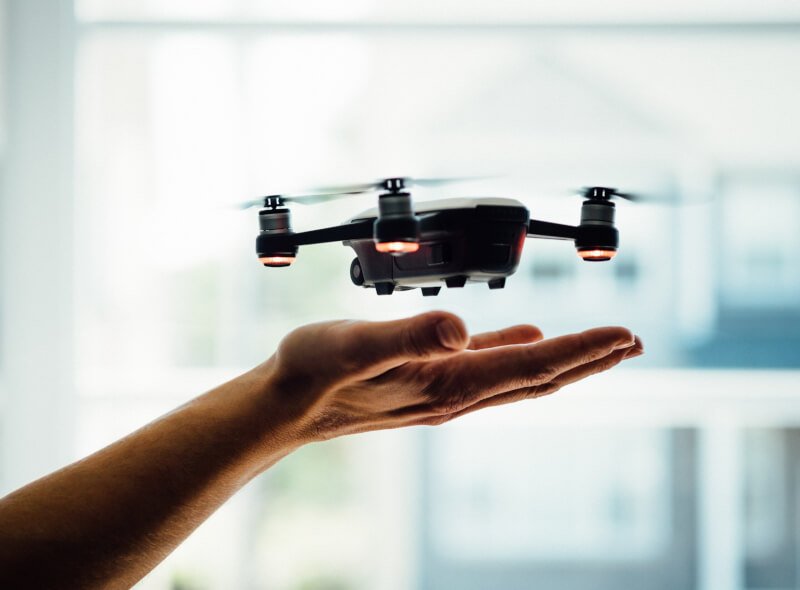
Safety and Security
The safety and security implications associated with the use of drones are significant concerns that require attention. It is crucial to address potential risks and implement adequate regulatory measures to mitigate them effectively.
Airspace Concerns
As drone usage increases, airspace congestion and safety concerns become paramount. Unauthorized or reckless drone operators can pose risks to manned aircraft, infrastructure, and the public. Implementing strict regulations, licensing requirements, and geofencing technology can help alleviate airspace concerns and ensure safe integration of drones into the airspace system.
Hacking and Unauthorized Access
Due to their reliance on wireless communication and networks, drones are vulnerable to hacking and unauthorized access. Malicious actors could potentially gain control of drones, compromise their safety features, or use them for illegal activities. Implementing strong cybersecurity measures and encryption protocols is paramount to prevent unauthorized access and protect against potential threats.
Explosive Payloads
The potential use of drones as delivery systems for explosive payloads raises significant security concerns. The misuse of drone technology for terrorism or criminal activities poses a threat to public safety and security. Therefore, regulatory frameworks and counter-drone technologies must be developed to detect and neutralize potential threats and ensure the responsible use of drone technology.
Implications on Human Rights
The integration of drones into various aspects of society raises critical human rights considerations that must be carefully addressed.
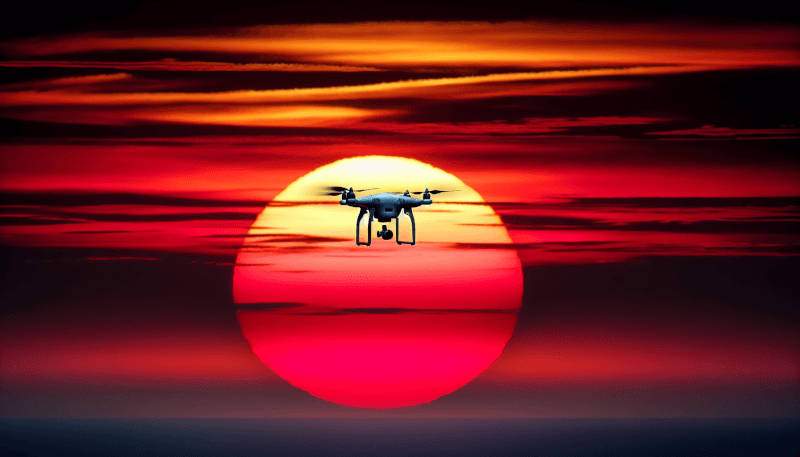
Right to Life
The use of drones in targeted killings or military operations can impact the right to life, both for combatants and innocent civilians. The ethical implications surrounding the use of drones in warfare necessitate rigorous adherence to international humanitarian law and the protection of innocent lives. Transparent and accountable decision-making processes are crucial to ensure that the use of drones does not violate fundamental human rights.
Freedom of Expression
Surveillance by drones can potentially infringe upon the freedom of expression. Individuals may feel stifled or under constant surveillance, limiting their ability to express themselves freely. Safeguarding this fundamental right requires clear guidelines and oversight to prevent the chilling effect drone surveillance may have on freedom of expression.
Right to Privacy
The intrusive nature of drone surveillance raises concerns about the right to privacy. Protecting individuals’ private spaces and safeguarding their personal information is essential to maintain a balance between the benefits of drone technology and privacy rights. Regulations and guidelines must be in place to ensure responsible and ethical use of drones, particularly when it comes to capturing and storing potentially sensitive data.
Regulation and Accountability
Creating a comprehensive regulatory framework is essential to address the ethical concerns associated with drone use. Regulation and accountability mechanisms can provide clear guidelines on acceptable use, strengthen privacy protections, and mitigate potential risks.
International Legislation
Harmonizing international legislation is crucial for the ethical use of drone technology. Collaborative efforts among nations can establish common standards and address cross-border concerns such as privacy, data security, and the use of drones in warfare. Diplomatic discussions and forums can facilitate meaningful dialogue to ensure globally accepted regulations.
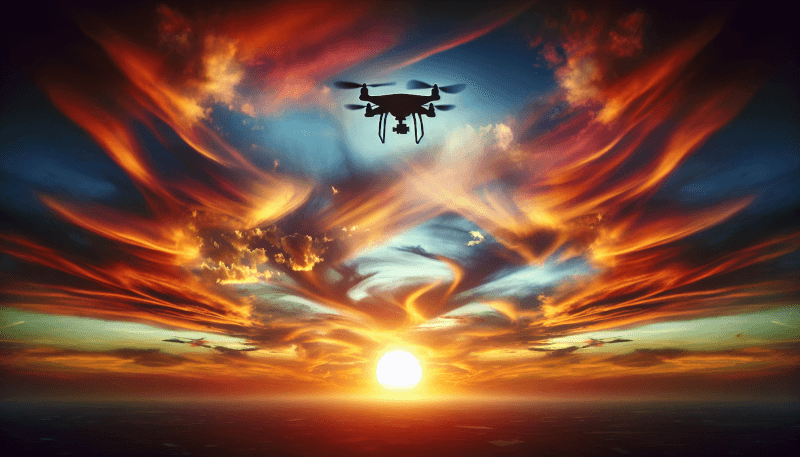
National Laws and Regulations
Individual nations must enact laws and regulations that govern drone use within their jurisdiction. These regulations should address privacy concerns, airspace restrictions, licensing requirements, and safety protocols. Additionally, they must enable law enforcement to enforce compliance and hold individuals or organizations accountable for any misuse of drone technology.
Responsibility and Liability
Establishing clear lines of responsibility and liability is vital to ensure accountability in drone use. Manufacturers, operators, and individuals should be held responsible for any harm caused by drone operations. Liability frameworks should also outline the responsibilities of technology developers, operators, and end-users, promoting a culture of responsible and ethical drone use.
Autonomous Drones
The development of autonomous drones introduces a new set of ethical considerations. As drones increasingly operate without human intervention, questions regarding their decision-making capabilities and potential lack of human control emerge.
Ethical Considerations
Autonomous drones raise concerns about their ability to make ethical decisions. Programming drones with decision-making algorithms introduces a level of autonomy that may not align with human values and ethics. Ensuring that autonomous drones act ethically and prioritize human safety remains a significant challenge that requires careful consideration and ongoing development.
Decision-making Algorithms
The algorithms powering autonomous drones play a crucial role in their decision-making processes. These algorithms must be designed to prioritize human life, minimize harm, and adhere to ethical principles. Testing, validation, and peer review processes should be in place to verify the effectiveness and ethical alignment of these algorithms.
Lack of Human Control
The lack of direct human control in autonomous drones presents a unique ethical challenge. The ability of drones to operate independently can lead to unintended consequences or actions that do not align with human values. Finding a balance between automation and human oversight is crucial to avoid potential ethical dilemmas and ensure accountability for drone operations.
Public Perception
The public’s perception of drones and their ethical implications strongly influences the acceptance and regulation of this technology. Understanding the various attitudes and concerns surrounding drones is essential for fostering a constructive and informed dialogue.
Fear and Paranoia
Public perception of drones can be influenced by fear and paranoia, often fueled by sensationalist media coverage. Privacy concerns, safety risks, and potential malicious uses contribute to public apprehension. Addressing these fears through education, awareness, and transparent communication can help alleviate concerns and promote a more balanced understanding of the technology.
Acceptance and Benefits
While some may have reservations about drones, there are numerous benefits they offer across various sectors. From saving lives in search and rescue operations to improving agricultural practices and revolutionizing industries, drones have the potential to bring positive impact. Highlighting these benefits and showcasing responsible use can contribute to greater public acceptance.
Media Influence
The media plays a significant role in shaping public perception of drone technology. Accurate and balanced reporting is crucial in preventing sensationalism, fearmongering, or the oversimplification of complex ethical concerns. Engaging with the media to provide accurate information, real-life examples of responsible drone use, and the potential benefits can help shape a more nuanced public understanding.
Future Challenges and Debate
As drone technology continues to advance rapidly, new challenges and ethical debates are bound to emerge. It is essential to anticipate and address these challenges to ensure responsible and ethical use of drones.
Advancement of Technology
The rapid advancement of technology introduces both opportunities and challenges. As drones become smaller, faster, and more capable, their potential for misuse or unintended consequences increases. Proactive measures such as ongoing research, evolving regulations, and robust ethical frameworks are necessary to keep pace with technological advancements and anticipate future challenges.
Ethics Committees and Debates
Establishing dedicated ethics committees or forums can facilitate ongoing debates and discussions surrounding drone technology. Bringing together experts from various disciplines, including law, ethics, technology, and human rights, can help shape ethical guidelines, propose solutions to emerging challenges, and provide valuable insights to policymakers and regulators.
Balancing Innovation with Ethical Values
Balancing innovation with ethical values is essential to harness the potential of drone technology responsibly. It is crucial to proactively identify and address any ethical concerns arising from the development and use of drones. By aligning innovation with ethical principles, we can navigate the complex landscape of drone technology and ensure its positive contribution to society while respecting fundamental rights and values.
In conclusion, the ethics of drone use present a myriad of challenges and considerations across different sectors. Privacy concerns, military applications, law enforcement, commercial use, safety and security implications, human rights, regulation, autonomous drones, public perception, and future challenges all demand careful attention. It is vital to engage in ongoing dialogue, foster responsible use, and strike a balance between innovation and ethical values to navigate the ethical boundaries of drone use successfully.
